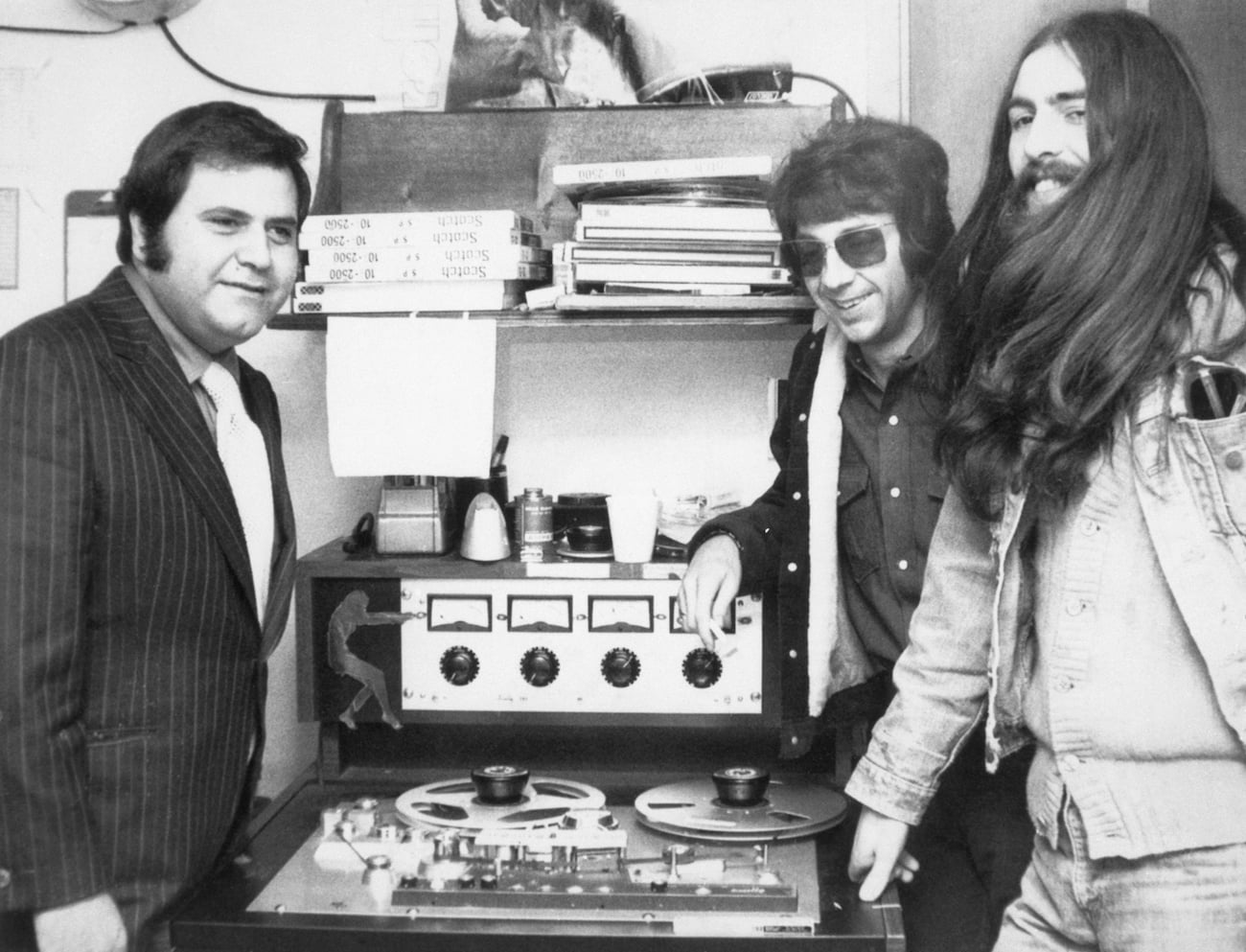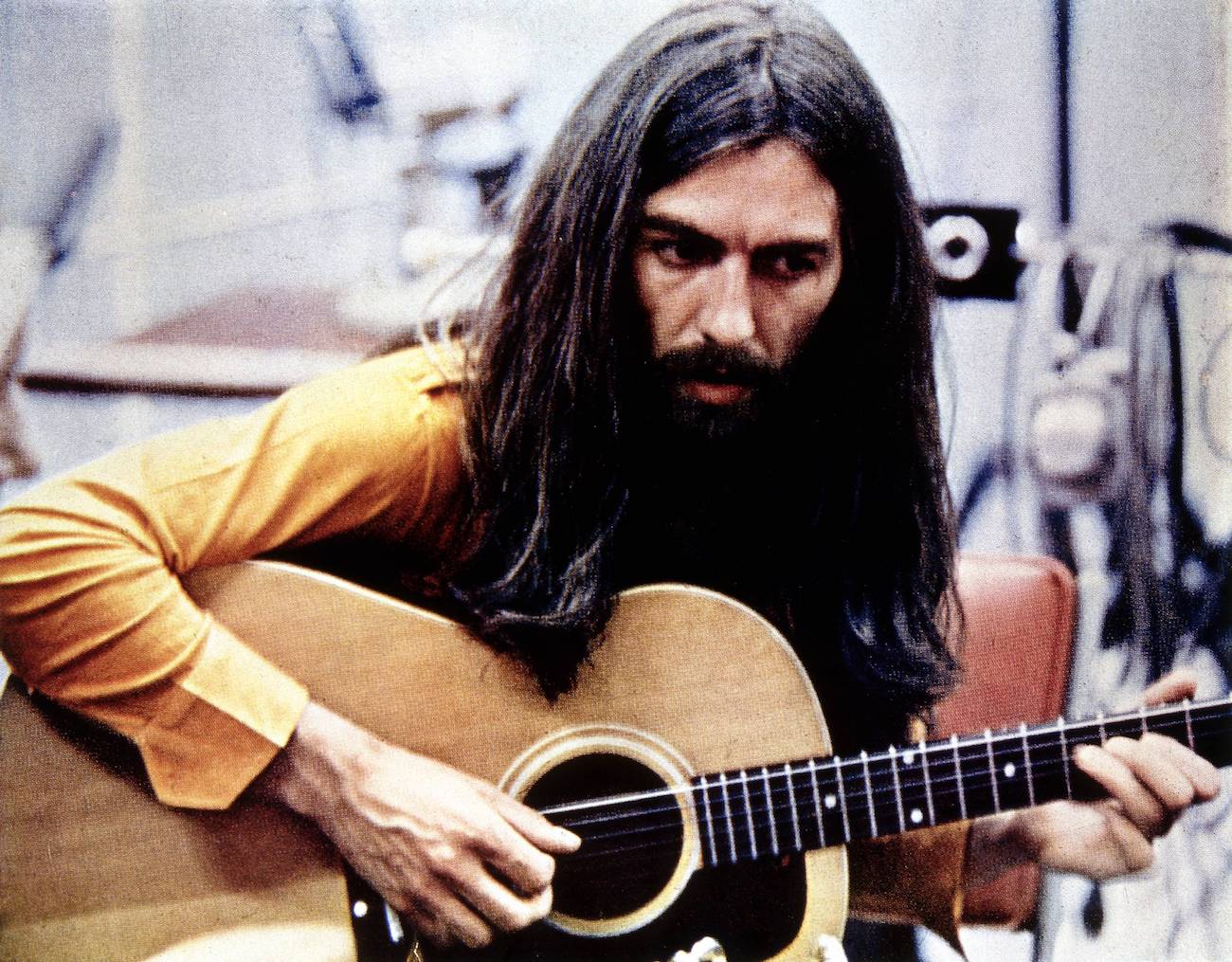
Phil Spector Encouraged George Harrison to Perform Better on ‘All Things Must Pass’
Phil Spector had some interesting notes for George Harrison and his first recording of “All Things Must Pass.” The producer encouraged the former Beatle to perform better on the next version.

Phil Spector loved the demos George Harrison had before recording ‘All Things Must Pass’
Paul McCartney and John Lennon constantly pushed George’s songwriting talent aside. They preferred using their own songs and allowed George to contribute only a few of his per album. Eventually, George started stockpiling his tunes, leaving him feeling stifled and constipated.
During a 1990 interview with Sunday Sunday, George explained that he’d still be releasing the songs he wrote in the late 1960s if The Beatles were still releasing music. So, when George entered the recording studio in 1970 to record his first album post-Beatles, he already had tons of tunes.
George chose Phil Spector to produce All Things Must Pass. George’s demos “amazed” The Wall of Sound pioneer. “It was endless!” Spector said in Martin Scorsese’s documentary, George Harrison: Living in the Material World. “He had literally hundreds of songs and each one was better than the rest. He had all this emotion built up when it was released to me.”
Spector advised George to re-record ‘All Things Must Pass’
George recorded All Things Must Pass from May to October 1970. On August 19, Spector sent a letter to George, which gave notes on the album’s recordings so far (per Rare Beatles). Spector wrote that George still had a lot of work to do, including on the title track.
“I have listed each tune and some opinions on each for you to use…,” Spector started his letter. “In general, I feel the remixing of the album requires a great deal of work or at least a few hours on each number. I feel it would be best if we saved all remixing until I return as a great deal of the mixes should be done with a fresh approach. Though the following looks like a book, it is just because there are so many songs and opinions.”
On “All Things Must Pass,” Spector advised George to perform better.
“I’m not sure if the performance is good or not,” Spector wrote. “Even on that first mix you did which had the ‘original’ voice, I’m sure is not the best you can do. But, perhaps you should concentrate on getting a good performance.
“I still prefer the horns out on the intro but that is a remix decision which should be done at that time. Also the voices in the bridge (Eric and Bobby) sound flat, and should be very low in the final mix. This particular song is so good that any honest performance by you will be acceptable as far as I’m concerned but if you wish to concentrate on doing another then you should do that.”
Spector also said “Awaiting On You All,” If Not For You,” and “I’d Have You Anytime” had buried vocals. “Isn’t It A Pity” needed orchestration, “My Sweet Lord” was missing backing vocals, “Wah Wah” was missing a bridge, and “Beware Of Darkness” needed “a better bump with a bit more rhythm guitars.” The only track that was good as is was “Apple Scruffs.”
The former Beatle had a hard time working with Spector
Despite Spector’s detailed notes, George didn’t have the easiest time working with the notorious producer.
During a 1987 interview with Timothy White for Musician Magazine, George explained, “Well, on ‘All Things Must Pass,’ Phil came in and we did half the backing tracks. Then, because of the condition he was in, he had to leave and I completed the rest of the backing without him.
“And did maybe 50 percent of the overdubbing, all the backing vocals and all the guitar parts. All of this was over a four, five-month period. But he still had to keep going to the hospital, seeing a doctor. He was going through a bad time with drinking and it made him ill.”
A year after All Things Must Pass, George asked Spector to produce the live album of the Concert for Bangladesh. However, it was another mistake.
“Phil was at the concert dancing in the front when it was being recorded!” George said. “There was a guy, Gary Kellgren, who did the key work in the live recording. Then when Phil came to the remix, again Phil was in and out of the hospital.”
George didn’t learn his lesson. He got Spector back for Living in the Material World. This time, George had to make Spector come into the studio personally.
“Phil worked on the second solo album, ‘Living in the Material World,’ but by that I mean he was around. Again, he kept falling over and breaking his ankles, wrists,” George explained. “The guy who was his helper was having heart attacks.
“Phil was never there. I literally used to have to go and break into the hotel to get him. I’d go along the roof at the Inn On The Park in London and climb in his window yelling, ‘Come on! We’re supposed to be making a record!’ He’d say, ‘Oh. OK.’
“And then he used to have 18 cherry brandies before he could get himself down to the studio. I got so tired of that because I needed someone to help. I was ending up with more work than if I’d just been doing it on my own.”
So, George learned his lesson to never work with Spector again. At least Spector gave some great notes about “All Things Must Pass” and its album, although some would disagree. While George’s son, Dhani, remastered the record for its 50th anniversary, many told him to de-Spector it. Dhani argued that would take away some of the album’s history. He was right.


